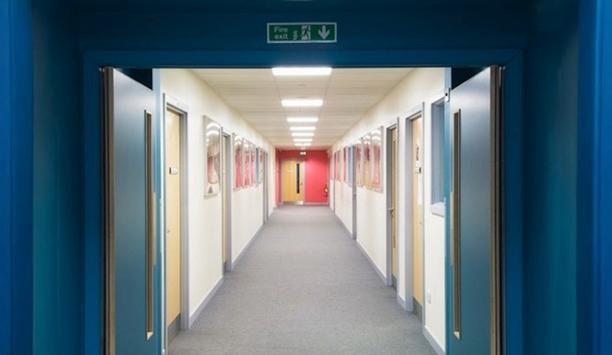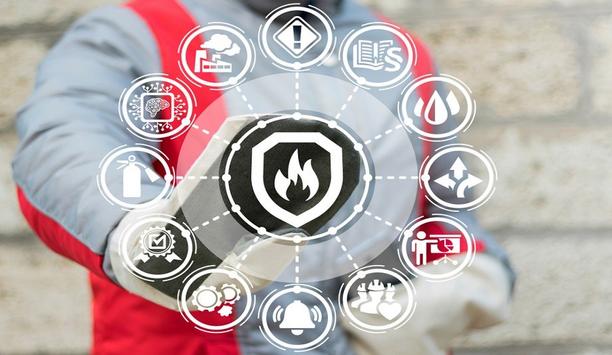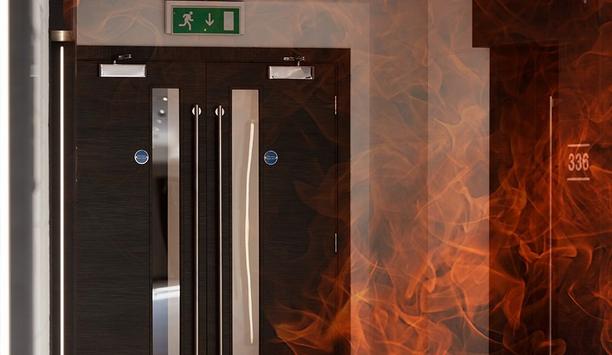The majority of fires within the UK take place within the home; with that in mind, it is highly advisable to regularly update and practice exit strategies in the event of an emergency.
In order to raise awareness of fire safety in our communities, it’s important to be clear on what the most common causes of household fires are.
Electrical appliances
Electrical items are a major culprit of home fires. This can easily be avoided by ensuring a PAT test is carried out each year. It’s crucial to replace damaged or frayed wiring around outlets and to dispose old or faulty appliances. Never overcrowd electrical outlets and only use extension cords when necessary. Overwhelming units by ‘daisy chaining’ extensions to fit more appliances leads to higher chances of an electrical fire. All electrical appliances should additionally be repaired or installed According to the London Fire Brigade, around 60 percent of fires in the home begin in the kitchenby a certified professional.
It’s also worth keeping an eye on sockets and fuses that blow for no reason. Flickering lights and scorch marks on sockets or plugs are easy signs which can alert you to unsafe environments. A common habit is to leave electrical items unattended overnight on ‘standby’ mode, this should always be switched off when not in continual use to avoid overheating. Whilst personal home assistant devices are meant to be in constant operation, be sure to look out for hot plugs and turn off outlets when you will be out of the house for extended periods of time such as holidays or weekends away.
Smoking materials, lighters and matches
The festive season sees a 12% surge in call-outs compared to the monthly average and over the last three years, fire crews dealt with 2,300 fires on Christmas Day alone.
When celebrating the festivities try safer alternatives such as battery-operated or LED candles. Faux candles are a great substitute, particularly if you are living with young children. Always let hot matches cool in a metal or ceramic dish or run them under water for extra precaution. Keeping matches nearby lit candles or leaving lit candles unattended overnight are palpable dangers within the home.
 |
| When celebrating festivities, try safer alternatives such as battery-operated or LED candles |
Space heaters
Portable heaters are the cause of many UK home fires, according to the National Fire Protection Association. Half of those fires occur because objects are kept within three feet of the heater getting far too hot and catching alight. Keeping flammable items at the recommended distance is essential warding off potential fires. Refrain from covering heaters or air vents with dry or damp washing, even if you have installed a fireguard.
While some space heaters utilize a self-timer or sleep feature, be sure to manually switch off the heater when it’s not in use. By assuming the heater will automatically turn itself off, you leave yourself at risk as the heater may malfunction. Additionally, as self-timers only control the product itself and not the outlet, the plug still may be at risk of overheating.
Cooking
According to the London Fire Brigade, around 60 percent of fires in the home begin in the kitchen. It is crucial to be aware of your safety whilst cooking, with some points to always consider:
- Try not to leave cooking unattended on the hob or grill – if you leave the kitchen turn off the heat
- Do not cook whilst under the influence of alcohol or medication that can cause drowsiness
- Be aware of loose clothing that can easily catch fire, take care not to lean over a hob and always keep tea towels and clothes away from the cooker
- In the event of loose clothing or a cloth catching fire; practice the stop, drop and roll rule – don’t run, lie down on the ground and roll in heavy fabric or a fire blanket to smother the flames
- Keep the oven, hob, extractor fan and grill as clean as possible – built up fat and grease can ignite and cause fires
- Use spark devices to light gas cookers, they are far safer than matches or lighters as they don’t have a naked flame.
- Ensure toasters are kept clean and not placed under kitchen cabinets
- Never place anything made of metal in a microwave
- When cooking on the stove-top, use the fan or open a window to disperse any smoke and avoid accidentally triggering any fire alarm
- If water or food spillages occur whilst the hobs are on and in use, turn off the heat, remove any pans, and let it cool before using any cleaning equipment
Preventing spreading
To prevent fires from spreading, it’s important to check hidden electrical outlets, particularly those behind large pieces of furniture such as television stands or couches – be sure to keep enough distance between the object and the outlet to prevent crowding. Check these out of sight outlets once a month to ensure there are no obvious signs of scorch marks. It is also a good idea to ensure you add an outlet inspection to any checklist before leaving on holiday.
Good fire safety precautions can be practiced as part of your daily routine. Ensure you keep a torch and phone by your bed in case of a fire during the night. Install a dual alarm that uses long-life lithium batteries on every level of your home (including the basement). Test smoke alarms monthly to make sure they’re working properly and ensure you take the time to replace batteries every year for complete peace of mind.
 |
| Test smoke alarms monthly to make sure they’re working properly and ensure you take the time to replace batteries |
An exit strategy
If you find yourself trapped with no feasible exit to safety, get everyone into one room, ideally with a window and a phone and place bedding around the bottom of To prevent fires from spreading, it’s important to check hidden electrical outlets, particularly those behind large pieces of furniture the door to stifle smoke. Call 999 when possible and open the window to let your presence be known. If you’re on the ground or first floor, you may be able to escape through a window. Use bedding to cushion your fall and lower yourself down carefully – don’t jump. If you can’t open the window break the glass in the bottom corner and make jagged edges safer by cushioning glass with a towel or thick blanket.
Don’t make the mistake of investigating what’s happened in the event of a fire or rescuing valuables. If there’s smoke, keep low where the air is clearer. In the event of having to open a door, check if it’s warm. If it is, don’t open it – it is likely the fire is on the other side.





















